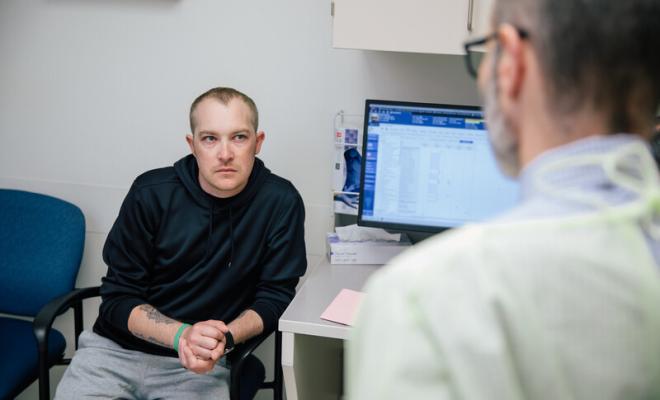Diagnosis and Engagements in CF Care
- Delayed Diagnosis: Newborn screening panels are less likely to include rarer mutations, which are more common in people of color with cystic fibrosis. As a result, infants of color with CF are disproportionately diagnosed later than non-Hispanic white infants
- Delayed First Evaluations: Infants of color with CF are often older when they are first evaluated at a CF care center and have poorer nutritional outcomes than non-Hispanic white infants.
- Engagement Barriers: Black people with CF express experiencing bias from health care providers — including the misperception that CF only affects white people — and an overall lack of representation and trust in their health care settings.
"My 11-year-old son’s race and ethnicity have impacted his ability to receive treatment for his cystic fibrosis, especially in the early years of his life. Khaleb’s treatment has been delayed because I have to take time to explain, ‘Yes, he really does have cystic fibrosis.’" — Lathronia Jefferson, mother of a child with CF
Staying Healthy With CF
- Fewer Approvals for Transplants: People with cystic fibrosis who are racially diverse or face certain socioeconomic barriers are less likely to be approved for lung transplants.
- Disparate Health Outcomes: Data have shown Hispanic people with CF have an increased risk of Pseudomonas, lower lung function, and a higher rate of death than non-Hispanic white populations.
Developing CF Treatments
- Low Representation in Clinical Trials: In 29 studies that reported race and ethnicity, Hispanic and Black people with CF made up only 2% and 1% of participants, respectively, despite comprising a larger portion of the CF population.
- More Commonly Ineligible for Modulators: People of color are more likely to have rare or nonsense mutations that do not respond to current modulators that address the underlying cause of cystic fibrosis.
The CF Foundation's Efforts
The Cystic Fibrosis Foundation is committed to fostering equity in CF and confronting the systemic barriers that have contributed to these health inequities. These efforts are necessary to achieve our mission of finding a cure and providing all people with CF the opportunity to lead long, fulfilling lives.
The Foundation is working in close partnership with the community on many efforts to address racial inequities in cystic fibrosis, including:
- Funding more major genetic therapy programs than ever before that have the potential to treat all people with CF, including those with rare and nonsense mutations
- Reducing barriers to enrollment in clinical trials
- Addressing the current disparities in newborn screening across the U.S. by establishing a nationwide initiative focused on improving equity, sensitivity, and timeliness in diagnosing people of color with cystic fibrosis
- Providing more opportunities for Spanish-speaking members of the CF community to participate in events and access peer support
More research is needed to better understand how systemic barriers impact people of color with CF throughout their lives.
Visit cff.org/OurCommitment to hear more from Lathronia and other members of the CF community, and learn more about what the Foundation is doing to address health inequities.

